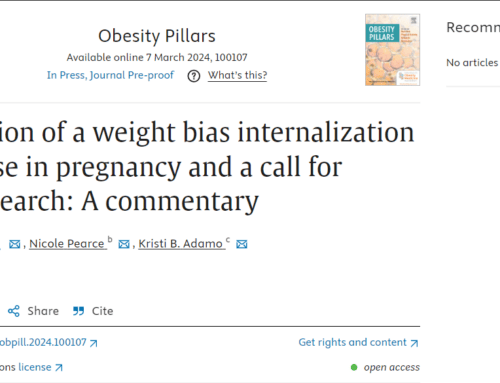Today’s member profile comes from Dr. Annalijn Conklin, PhD, MPH, Assistant Professor in UBC’s Faculty of Pharmaceutical Sciences and a Scientist in the Centre for Health Evaluation and Outcomes Sciences at St. Paul’s Hospital in Vancouver. Dr. Conklin sits on the Clinical Adults Committee.
I am an Assistant Professor in UBC’s Faculty of Pharmaceutical Sciences and a Scientist in the Centre for Health Evaluation and Outcomes Sciences at St. Paul’s Hospital in Vancouver. I have a diverse background covering health policy, epidemiology and public health, life sciences, and even philosophy; and I hold degrees from the University of Toronto (Hon.B.Sc.), Edinburgh (Research M.Sc.), Columbia University (MPH), Cambridge University (Ph.D.), and UCLA (Postdoctorate). I lead a program of policy-focused social epidemiology and outcomes research to improve the prevention, treatment, and outcomes of cardio-metabolic conditions, with a focus on obesity and gender.
My team is currently working on several projects in obesity research. One CIHR-funded project is exploring how social connections (both quantity and quality) influence body mass index and waist circumference among older Canadian women and men using data from a national cohort called the CLSA. One MSc student is focused on different types of sleep deficits (sleep deprivation, sleep disturbance, and social jetlag) in relation to sugar-sweetened beverage intakes among adolescents using data from a cohort of teens in BC. Another new M.Sc. student will quantify the impact of job loss on weight gain in women and men in Canada, also using CLSA data. And finally, my doctoral student has recently completed a comprehensive review of literature on the role of dietary diversity in preventing metabolic-related outcomes, including obesity, diabetes, depression, and cognitive decline.
This research is important because there is a large knowledge gap in the social-level drivers of obesity (and other cardiometabolic conditions), and in the sex or gender differences of broader determinants. That is, research on women’s cardiometabolic conditions and risk factors is limited and rarely focuses on both gender and social determinants. The absence of evidence hinders our ability to target interventions to the specific needs of different populations in BC, Canada and globally. My novel, multi-disciplinary research will therefore provide clearer insights for decision-makers, providers, and public health action to tackle inequalities and improve the health and quality of life of all Canadians.






